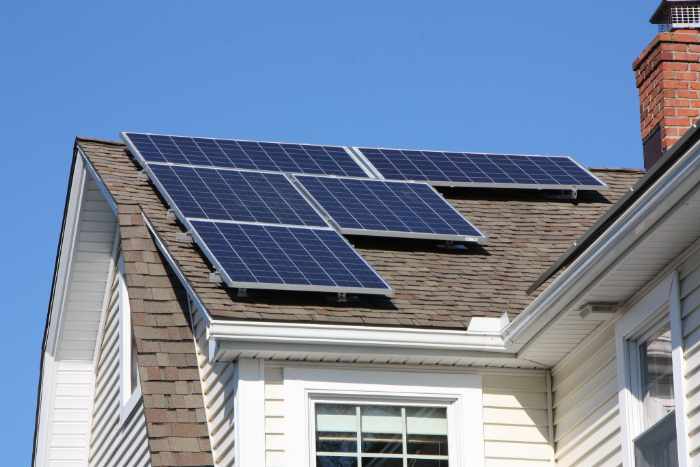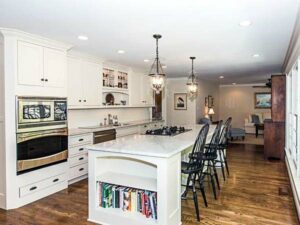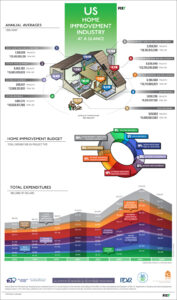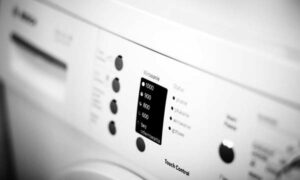Your house’s comfort level depends on the efficiency and efficacy of your HVAC systems. HVAC systems ensure that the indoor environment and comfort should be maintained at a sustainable pace. With the growing environmental impact, solar-powered HVAC systems have become a wave in the market. It helps to curb energy usage and mitigate the impact of greenhouse gas emissions. Let’s learn more!

What Is A Solar-Powered HVAC System?
The solar-powered HVAC systems prominently use solar energy to perform their functions. The system uses solar energy to create electricity, which powers its many components, by combining proven HVAC concepts with solar power. This method utilizes photovoltaic solar panels to capture and transform sunlight into usable electrical energy, feeding pumps, compressors, and fans.
A solar-powered HVAC system’s primary goal is to reduce reliance on traditional electricity sources, which will result in financial savings by reducing AC repair and a notable decrease in the environmental impact associated with interior climate management. These technologies aim to develop a sustainable and energy-efficient method of sustaining comfortable interior settings through this creative integration.
Types of Solar-Powered HVAC Systems
The HVAC system is one important aspect of your home it is important for the comfort and solace of your home. There are mainly four types of HVAC systems:
DC Solar Air Conditioners
DC-powered solar air conditioners are recently year cost saving innovative solutions. Contrary to the original HVAC systems, it uses solar energy that gives HVAC systems power to work. It additionally works as a savior for the environment as well as your pocket.
DC solar air conditioners have built-in photovoltaic panels that use sunlight to convert solar energy into electrical and helps HVAC systems to work efficiently. DC solar air conditioner is efficiently reducing carbon emissions making it a reliable alternative choice for cooling needs of residents and commercial buildings.
Solar AC Power Air Conditioners
AC systems play a very important as a mediator that adds solar power to your home’s electrical connections. Solar panel services are to primarily generate direct current from sunlight that is later converted into an alternate current. The house grid and appliances mainly work on AC. The conversion of AC to DC is crucial as it makes sure that solar energy should be evenly distributed and utilized among the different household appliances and grids.
Another crucial factor to changing DC to AC is that AC has the ability to change direction and voltage level through the main power converter called transformers making it ideal for long-distance transmission and a safer alternative for household use.
Hybrid Solar Air Conditioners
As the name suggests hybrid solar air conditioners combine different types of energy like solar, electrical, and backup generators to form a diverse and reliable energy solution. Sometimes solar energy might lack on some days that’s where hybrid energy comes into play to make sure there should be no hindrance in power supply and working of appliances.
Solar Thermal Air Conditioners
Solar thermal systems harness the sun’s energy using specialized plates designed to capture its radiant heat. These plates facilitate the conversion of solar energy into electricity by turning an electric generator. This generated electricity then powers the compressor component nestled within the cooling system.
This innovative process showcases the interconnectedness of renewable energy and cooling technology, as solar power is transformed into the energy needed to drive the cooling cycle. By efficiently converting sunlight into electric power, solar thermal systems offer an environmentally friendly approach to cooling while reducing reliance on traditional energy sources.
Pros of Solar-Powered HVAC Systems
Renewable Energy Source
Solar-powered HVAC systems channel the sun’s energy which is renewable and virtually limitless that revolutionizes cooling, heating, and working systems. Utilizing this renewable resource allows individuals to save costs, their reliance on energy from fossil fuels, and their carbon impact. This innovative approach aligns sustainability with comfort, offering a greener alternative that contributes to combating climate change.
Energy Cost Savings
Solar energy is a cheap and cost-effective alternative that results in long-term cost savings and electricity expense reduction after installation. The in-built net metering system ensures that maximum energy should be generated at peak hours. Maximum enough for the backend to be working.
Energy Independence
Embracing solar power technology enables individuals and businesses to achieve a sense of energy self-reliance, diminishing vulnerability to erratic energy costs and supply interruptions. Through the local generation of electricity using solar panels, they can alleviate the influence of volatile energy prices and decrease reliance on centralized energy networks. This shift towards solar power cultivates stability, financial management, and a future marked by sustainable energy, reinforcing both economic robustness and commitment to the environment.
Cons of Solar-Powered HVAC Systems
Weather Dependency
Solar panels rely on sunlight for electricity generation, tying their performance to prevailing weather conditions. Reduced energy production occurs on cloudy days and during nighttime hours, affecting system efficiency.
The intermittency in energy generation highlights the significance of energy storage solutions such as batteries. These solutions guarantee a steady power supply, maximizing the efficacy of solar-powered systems regardless of varying solar availability.
Efficiency Limitations
Solar panel efficiency hinges on variables like panel quality, orientation, and shading. Factors such as panel placement and the presence of shadows impact their productivity. In situations where space is constrained or buildings are older, accommodating optimal solar panel installations might be challenging.
Older structures may lack suitable roof space for efficient placement. These constraints underscore the need for careful site assessment and customized design to ensure the effective integration of solar panels, maximized energy capture, and the realization of long-term benefits from solar technology.
Installation Challenges
The installation of solar-powered systems can be intricate, necessitating the expertise of professionals. Incorrect installation may result in compromised performance and diminished energy conservation. Precise alignment, appropriate wiring, and proper connection to the electrical grid are vital for optimal functionality.
Inadequate installation could lead to underperformance, reducing the system’s capacity to generate clean energy and achieve projected savings. Relying on trained professionals ensures meticulous installation, mitigating potential inefficiencies and ensuring the system functions at its peak, reaping the benefits of sustainable energy utilization.
How Many Solar Panels Does an HVAC System Need?
Planning a house or a kitchen remodeling consider implanting solar panels to save on carbon footprint. Typically, larger HVAC units demanding more energy will call for an increased number of solar panels to fulfill power needs. A comprehensive energy evaluation is crucial to ascertain the exact count of solar panels essential for peak efficiency. Considerations like panel efficiency and available sunlight duration in the area also play a role in this calculation. Collaboration with solar and HVAC experts can ensure a custom installation that aligns with the HVAC system’s energy usage, optimizing solar power advantages.
Conclusion
Alternatives to traditional HVAC systems that are both environmentally responsible and practical financially include solar-powered HVAC systems. While they bring about notable advantages like economical energy consumption and diminished carbon footprint, they do present challenges such as initial expenses and reliance on weather-dependent energy production. Prior to delving into solar-powered HVAC installation, it’s crucial for individuals and enterprises to meticulously evaluate their energy requirements, space availability, financial resources, and the regional climate. This scrutiny will ascertain whether this technology harmonizes with their aspirations for sustainability and operational efficiency.



